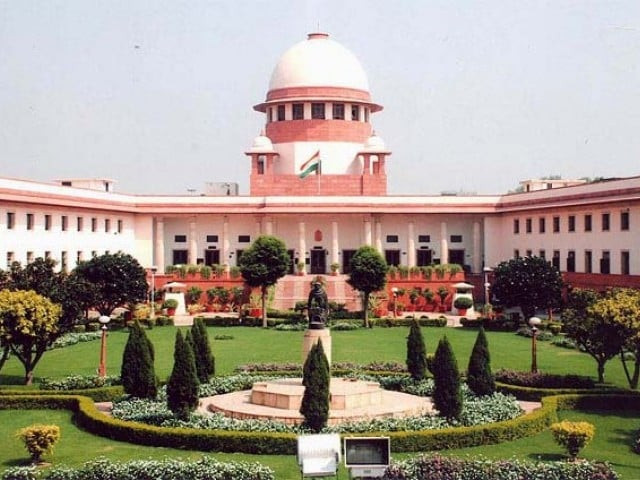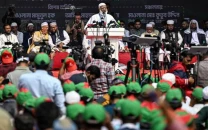Indian Supreme Court says fatwas have no legal sanction
Court says religion or faith cannot be used to victimise innocents and that no law has given recognition to fatwas.

Indian Supreme Court says fatwas have no legal sanction
The apex court said that neither Darul Qaza nor any mufti can issue fatwas and try to enforce against a person who has not approached him for religious opinion.
The order says that Shariat courts have no sanction of law and nobody can run a parallel court in India, especially if the fundamental rights of Indians, guaranteed by the constitution, are breached.
The Indian SC said religion or faith cannot be used to victimise innocents and that no law has given any recognition to fatwas.
The apex court cited the Imrana case and said fatwas can cause irreparable damage to the rights of an individual.
Imrana, a 28 year-old Muslim woman was sexually assaulted by her father-in-law in 2005 in Charthawal village in the Muzaffarnagar district of India and subsequently, Islamic clerics there called her marriage with her husband null and void as the Shariat regards sexual relations with both the father and son as incestuous, sparking outcry over treating a rape as adultery.
The SC said though religious opinion as fatwas have a laudable object, they cannot be enforced the moment they breach the fundamental rights of a person.
The Muslim Personal Law Board agreed with the ruling of the SC.
The verdict was given by the top court after a petition filed by Delhi-based advocate Vishwa Lochan Madan, challenged institutions like the Darul Qaza and Darul Iftaa.
A bench, headed by Justice CK Prasad, said that no religion, including Islam, allows punishing innocent persons and ordered that no 'Darul Qaza' should give verdicts that affects the rights of a person who is not before it.
The All India Personal Law Board had earlier submitted that a fatwa was not binding on people and it was just an opinion of a 'mufti' (cleric) and he has no power or authority to implement it.
The counsel, appearing for the board, had said if a fatwa was sought to be implemented against the wishes of the person concerned, then he could approach the court of law against it.
The petitioner had submitted that the fundamental rights of Muslims could not be controlled and curtailed through fatwas issued by 'qazis' and 'muftis' appointed by Muslim organisations.



















COMMENTS
Comments are moderated and generally will be posted if they are on-topic and not abusive.
For more information, please see our Comments FAQ